RLT Interview #3: Melvin Backman, Writer
On Jil Sander, desire versus appreciation, and the influence of his wife.
The RLT Interview explores all the things, people, and places that have informed a person's taste and, more importantly, sense of self.
This week, I chat with New York City-based writer Melvin Backman, who’s worked for Complex, Vulture, and The New Yorker and has written some of my favorite fashion stories. He also writes a fashion newsletter, If You Pleats, subscribe!
Get to know Melvin as he muses about desire versus appreciation, beauty beyond things, and graffiti.
On Taste
I had a pretty chill middle-class upbringing. I’m not going to say my family was broke or anything, because we weren't, but it wasn't crazy rich either. There wasn't a lot of instructional taste in terms of "do this" or "do that." It was more about noticing the things that my parents paid attention to, and then I started paying attention to those things too. I get a lot of it from my dad; he's always had different appreciations. He likes elephants, and I remember he had this really cool gold elephant pendant that he used to wear a lot. He would sometimes get it cleaned, and I'd be like, “This is a nice thing that my dad likes and cares about, and maybe I could care about stuff too.”
I tend to approach taste on a systematic level, and my dad is a big car guy, and cars are naturally systematic; you have a lot of parts and pieces that come together for a purpose; some people pay more attention to the engines, some people pay more attention to the wheels, but it all works together. My dad had a Mustang that he worked on, and I watched him gather his influences and make his decisions based on things that he saw, like car shows, or things he's recovering from his memory like the '67 or '68 Mustang Fastback from Gone in 60 Seconds.
My parents aren't really into a lot of the things that I'm into, but nobody arrives at their cultivation of taste as a blank slate. You are always pulling something from somewhere. And even if it's not the physical thing, the approach is what I got from my parents. My mom, she’s a big planner, and she’s always making sure things are taken care of. If I get my thinking around information from my dad, then a lot of my decisions around the things that I acquire are informed by my mom. It'll be like, fI need some boots, so I'm going to figure out what is the need for my boots, and I'm going to try and find the boots that best suit that need. That's the core of my approach to taste.
On Discovery
I've always been a shy person; I'm not super outgoing, so I look for things that can act as a shortcut to human interaction. For instance, even as far back as middle school, I remember I was really into punk because a lot of the kids I gravitated towards were into that. I was asking questions like, "What's punk?" "What are people doing?" "How are people dressing?" I was reading articles and trying to venture out to a show every now and again, trying to absorb it and make it a part of myself. Then I remember going to high school, and all the punk kids went to a different school, so I was on my own again. I thought, "Okay, the people that I'm drifting towards are a lot of graffiti kids and sneaker kids and skater kids." Again, I was asking, "How are they bringing this stuff into their world? How can I bring it into my world so that I can have something to talk about?" Then I just picked things up. Nike did a De La Soul collab, so I started listening to De La Soul, and then just branched off from there.
I read a lot about fashion, and many times the things that I read end up becoming things that I try to bring into my life. I read The House of Gucci, and there was a section about Dawn Mello. She used to be a big deal at Bergdorf Goodman, and then Gucci hired her to run the business on the creative side. She's the one who brought in Tom Ford. There was a section in there about how she was looking through the archives and brought back this leather tote bag that had a bamboo handle. So I thought, "Let me go see if there are any out there that I can get for not out-of-this-world prices." I got one, and now it's my everyday bag.
On Beauty
The hardest thing about taste is that there are so many beautiful things in the world, and there are so many ways for things to be beautiful, and the hardest part is editing it down and figuring it out. Some people say, actually, no, I don't have it edited down, I'll just bring in every beautiful thing I see and it works for them. But I need to have a focus. I'm very drawn to things that are simple and where the construction of the thing, the purpose of the thing, and the appearance of the thing all work together.
There's this Marcel Breuer chair that I got really hyper-focused on. There are lots of different kinds of chairs that you can get in the world. You can get a Togo or you can get a big stuffed teddy bear cigar chair. But this one I latched onto because there's nothing there; what you see is what you get. It's like you need a chair, you need somewhere to sit, you need an angle to sit at, and it's like boom, you have a couple of straps, you have some bent metal things that are pretty to look at, but it's like, that's it. That's probably the biggest personal driver of beauty.
But I also have an appreciation for things that are ornate. I'm not a big color person just because I feel like I'm too shy to carry a lot of color, but I do appreciate really great stuff with color, things that are clearly the culmination of a lot of care and craft and dedication. Even if you go into the street and you see a puddle, that puddle could be so beautiful; maybe there's an oil slick on it or it's in a pothole that really has an interesting shape to it. I have a 4-year-old daughter, and we go to the playground a lot. Sometimes I'm like, “Wow, this is such a great playground. That slide is so well-designed, or those swings are so well-placed, or this sculpture does not make any sense and is ugly and possibly too sharp to have on a children's playground. But you know what? It's like the person who made it put a lot of time and care into it, and I can appreciate that.”
Beauty also tends to get captured in physical things because those are the easiest things to talk about and show people and carry with you. But there's also so much beauty that happens outside of things, in the way that people treat each other, the way that people show up for each other, the way that people try to just be thoughtful about the way that they move through the world and the effect that they have on themselves and other people. But if you're somebody who wants cool stuff and if your thinking around taste is stuff-based, then that's harder to pin down. Sometimes if I am wearing a coat that I think is beautiful and I'm going through the world, just bathed in the beauty of this nice coat, it also helps make me a more gracious and thoughtful person. Like, I'm not even thinking about this coat because it's so great. So what can I think about, “Oh, I'm going to wait a second at the door and hold it for somebody. Or I'm going to see somebody on the elevator who has a mask on. I'm going to put my mask on.”
On Desire
It's too simple to say, but desire is something that you want and a lot of it comes down to a person and their life and then the want is what, I'm not saying this in a derogatory way, but sometimes there's something that is here and you are there and you want it to trickle down to you. The other day I was on the train and I saw this guy who had the most perfect jeans. There wasn't anything super special looking about them, but the fade was really good, the color was really good. It had a patch on it and the patch was really well done. The jeans that I have, they're fine, but there's just that imbalance. Those jeans were doing all the things that I want my jeans to do. And so I want those jeans, which is probably the simplest way that I can put it.
That's the difference between appreciation and desire. If I go to a museum and I see a Kehinde Wiley painting and you're like, this is really cool, but you know that you do not have Kehinde Wiley painting money. So it's just, I appreciate this painting, but I do not want this painting. But maybe you go to a local art fair and that same imbalance is like, I want a nice painting and maybe there’s young artists who don't command super duper high prices and you're like, wow, I want this. I can have it, and it settles an imbalance that I'm feeling in its presence.
That's such a mechanical way of thinking about it, but I feel like the difference is sometimes just an emotional thing. I can't explain it, but I want it. It's going from taking those feelings and transmuting them into the sharpness of desire. And to me, desire is like the recognition that you can bring that thing into yourself and all of the extra feelings that come from trying to figure out what your next step is going to be. It's like, I can have this, should I have this? I can have this. Will I have this? I can have this. What am I going to do next? Desire is where appreciation and attainability meet.
On Pleasure
I'm a big breakfast person, so getting my eggs just right, that's pleasurable. Being open to more good feelings. I like movies and going to museums. I'm big on constructing my life in a way that creates space for all of the gestures and sensations that make me feel good. Children are chaos agents, they don't really care. I mean actually children appreciate structure, but they also, in every bit of their being, stretch out and repel against structure. And so I'm going to construct my day in a way that will allow me to have beautiful moments with my family and my child. For instance, if we're going to the park, I am going to construct our day in the park so that we can get there efficiently. Then once we're in the park, I can have a wide open ability to just do fun stuff.
— As told to Tahirah Hairston
What's the last thing you did for pleasure?
I ate an egg bagel with cream cheese. I feel like those are more decadent than a regular bagel with cream cheese; the richness from the egg, the creaminess of the cheese – they just taste so good together.
What's the last thing you discovered?
There's this movie, Millennium Mambo, about, I guess the simplest way to say it, a go-go dancer and her DJ boyfriend, and they're having a really bad time in Taiwan. But there's a song playing in the movie when they're having a bad moment, and it's so good. I discovered the name of the song; it’s called "A Chat" by the guy who did the score, Lim Giong.
What's the last thing you read?
Currently, I'm reading two books. One is called The Fashioned Body. I just looked up fashion on Libby, and that was one of the books that came up. It's a book about the way people think about clothes on the body. The other one, shout out to my friend David Turner who got me into his book club about nightlife, is the book of the month called Psychedelic White. It’s about the community around Goa, India, and all the trance music and raves that came out of there. Kristin Malossi, aka DJ Voices, runs the book club.
What's the last thing you disliked?
I saw a tweet about the British Vogue cover, the last one that Edward Enninful did, that was about how it wasn't serving, and I just found myself very annoyed by it. I feel like sometimes people can be very uncharitable in the way that they assess things, and sometimes people use assessment as a way of establishing their own status instead of in pursuit of a deeper understanding and appreciation. And I hate that. So I did not like that tweet.
What are five things that have informed who you are today?
I'm very sad to say Kanye West. He's bad now, and he's kind of always been bad, but he was such a powerful cultural force that rewired the way many people think about things. I remember one time Vinson Cunningham said something that has stuck with me forever; he said that Kanye's greatest superpower is his taste. Granted, when you look at it, you realize, “Oh wow, if you base your whole life on aesthetics that can lead you down some very dark paths.” But, still very formative for me.
I would say Hot Rod. We had that at the house growing up, and I loved the way that car guys are so insistent on doing their various folk ways, their various histories, their various approaches and appreciations, and their partisanship. All of that made me.
Bad Brains. There's this really wild long article that’s an oral history of black punks, and reading that unlocked so many things for me; it still goes hard. I remember I got to see them at AfroPunk, and it’s still one of the greatest moments of my life.
There's also a Rolling Stone article about JA ONE and the way that graffiti artists do their thing. I had my little graffiti phase; I was not good. I didn't go all over the city or anything; I just wrote my name on some walls with a marker. It's something that you have to appreciate about graffiti culture; even if a lot of graffiti on the street is ugly, it's such an outlaw culture that defines itself by rule-breaking. People want to have good styles; they want to make things that look good and be appreciated by other graffiti artists. But at its very core, it's about transgression. And even if I'm not going to be someone who's out there doing it, you have that reminder that there are people out there who break rules and who love breaking rules and that whatever structures and tools that you try to put up to contain certain energies, there are people who don't care about that. I think that is very helpful because it's like, ‘Oh wait, I don't have to be held down by these structures. I can just do what I want.’ There is also this documentary called Infamy, which is about graffiti life but also about the compulsion to catch tags no matter what. It’s so beautiful to watch somebody give their life over to something that is bad and that is going to hurt them, but their appreciation of it just drives them. That's such an important energy to have; people who are able to do that have some of my greatest admiration.
Honestly, my wife. She studied costume design, and she's a very purpose-driven person. She's accomplished, but also somebody who revels in excellence. If I was the creative director of my life, then she is the CEO, in terms of being the person who's able to help focus my energies and let me know what I don't know and that helps tether me to reality. Not in the way of saying that she's boring, but she's just such an extremely smart and thoughtful and good-minded person. We were moving once, and she was like, ‘We need a couch.’ And then there was an offhand comment where she was like, ‘I like mid-century couches.’ And I was like, what's that? The next three years of my life were an intense download of mid-century design; all of these things happened because of a throwaway comment that she said. She is one of the greatest defining forces of my taste. Sometimes there are things that I like because I like them, and then sometimes there are things that I like so that I can bring it back to her like a dead bird. I'm a cat, and I'm just like, “Do you like this dead bird?” Sometimes she says yes, and sometimes she says no. But, I’m just trying to discover beautiful things that I think that she will think are beautiful too. Half my tastes are because of things that she guided me towards knowingly or not.
What do you smell like?
I got this Native deodorant because aluminum deodorants were ruining all my shirts. My daughter's name is Juniper, so I'm always drawn towards things that have her name and there was a juniper Native scent that I was using for a little bit. I went to the store and they didn't have any, so I got a lavender and rose scent, and that's what I smell like right now.
What's one thing you'll never get rid of in your closet?
I've always had an affinity for preppy things and preppy things lead to Ivy things. I read Take Ivy and one of the things that it talks about is three, two suits, which are suits that button at the second button button, but they have three buttons. So I searched for three, two suits on eBay and one of them was this Jil Sander suit, and that's also how I discovered Jil Sander. It's a little wrinkly, it has this weird chest pocket and the materials are really soft. It’s not only served its purpose well, but it also means so much to me that I am probably always going to keep it around.
What's something you spent a lot of money on that was actually worth it?
A child.
What's something you spent a lot of money on that wasn't worth it?
I would say a pair of tabi boots. I was trying to be “Mr. Fashion Guy” and I got some high-heeled tabi boots because I thought I was going to try and have more of a gender moment. They were cool, but just on a practical day-to-day level, I'm just not that person. I walk too flat-footed and my feet are a little bit wide. I spent too much money on them and I lost my job and I was like, ”Shit, I got to get some coins together”. I ended up selling them. Looking back, I think the better play would've been to get some tabi penny loafers, just because it’s more me.
What’s one thing you always recommend or gift to people?
I recommended somebody go see the Judy Chicago show at the New Museum, and then they went and they liked it. That's something. I try to recommend things that people can see, And then gifting snacks. Just saying, “Hey, you want to go get coffee?” You go to the store, you go to the cafe, you get the coffee, you get a pastry and you say, “I got it”. I enjoy gifting people a shared small bite.
What do you think it means to have taste?
To know what you want to know, why you want it, and to be able to bring it into your life in an organic and purposeful and beautiful way.


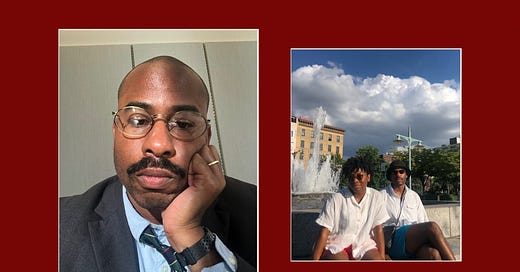



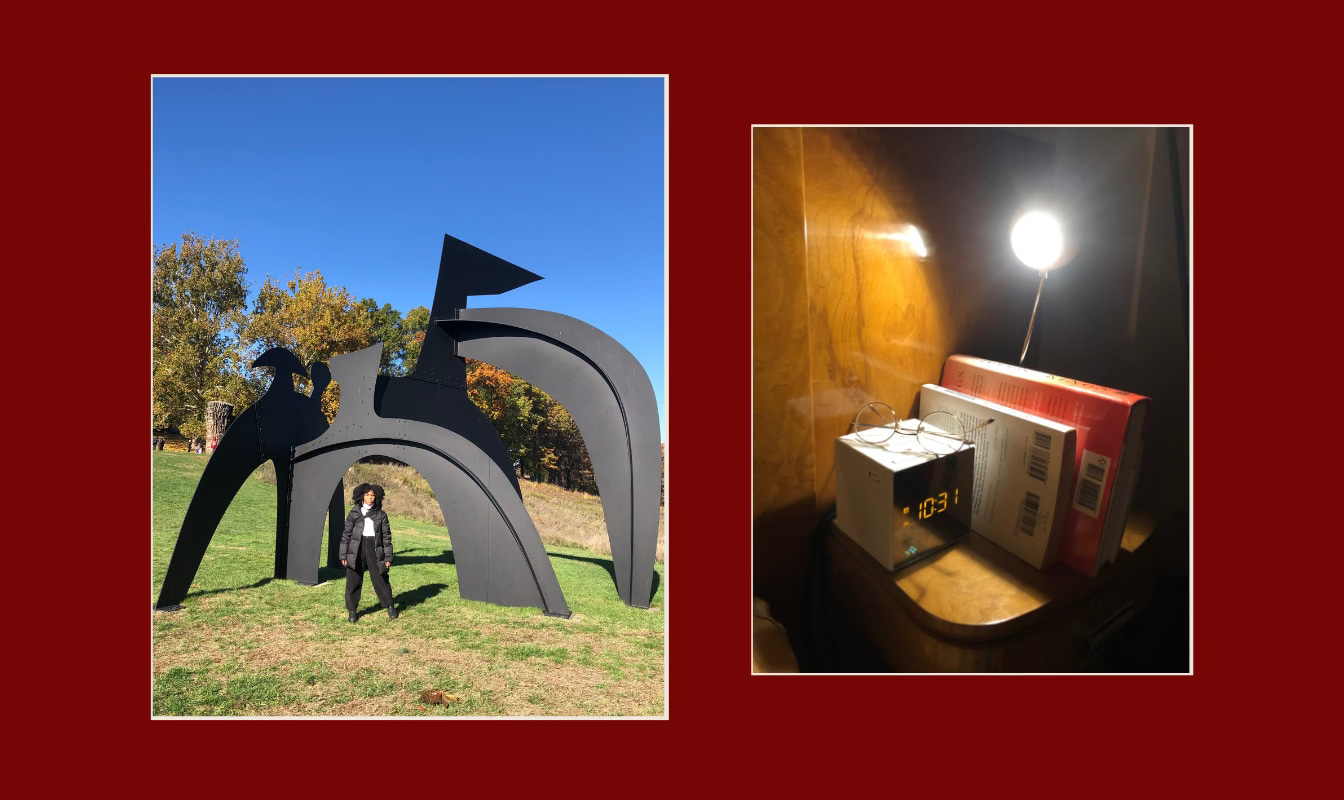

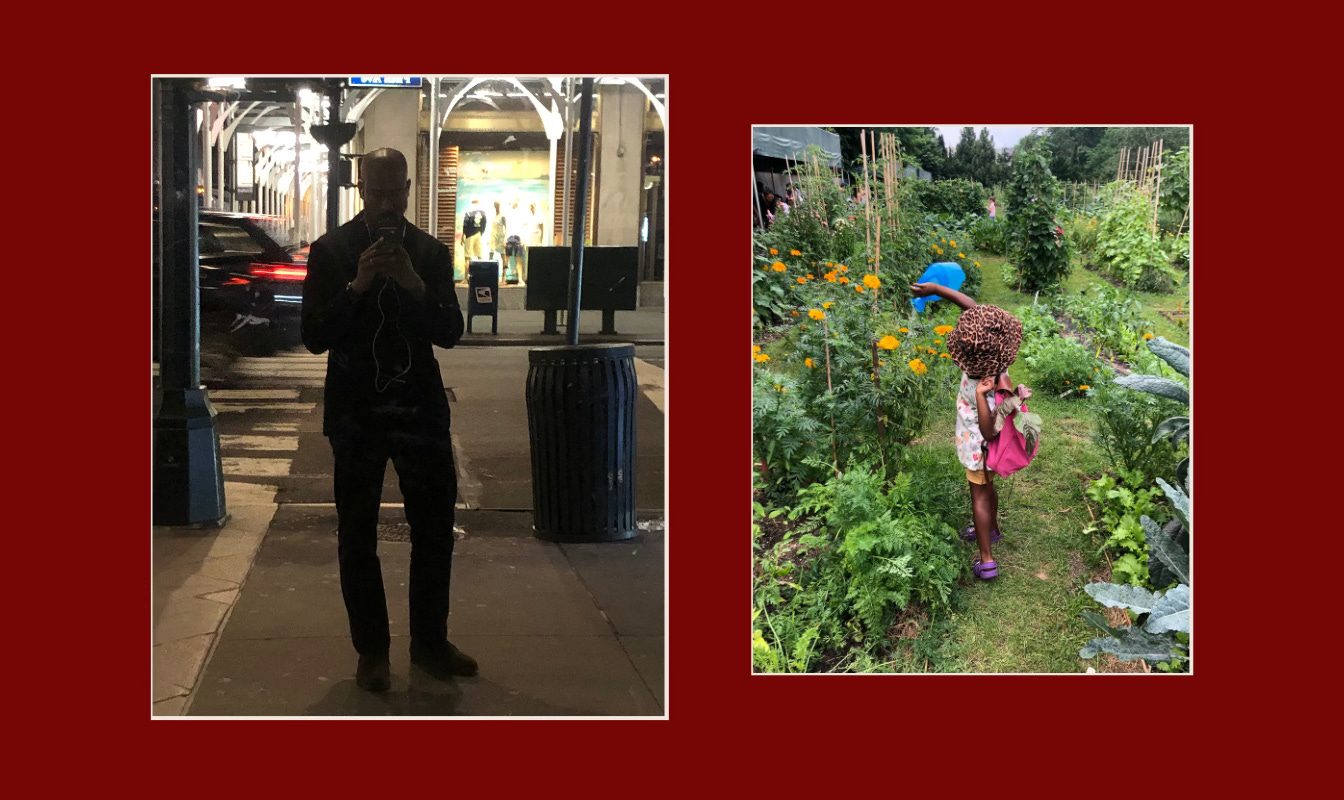

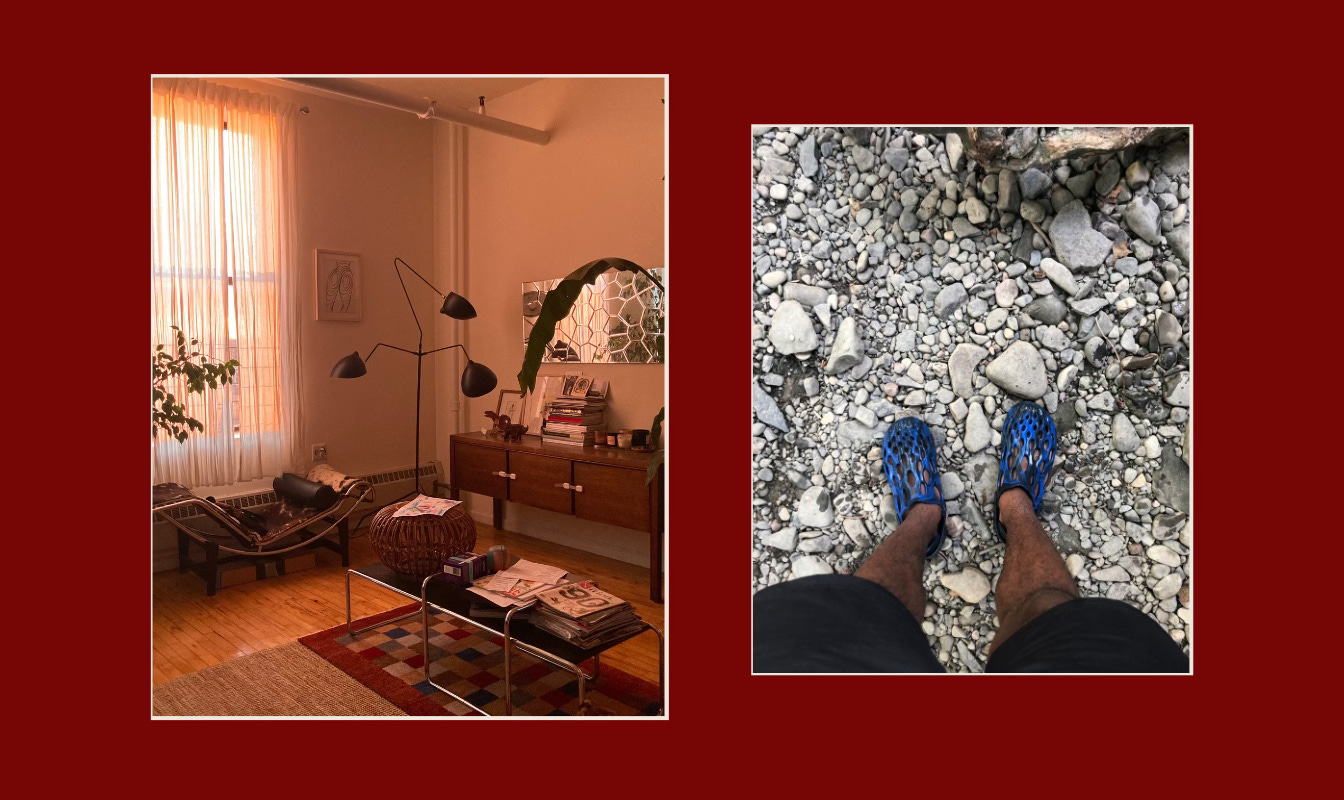
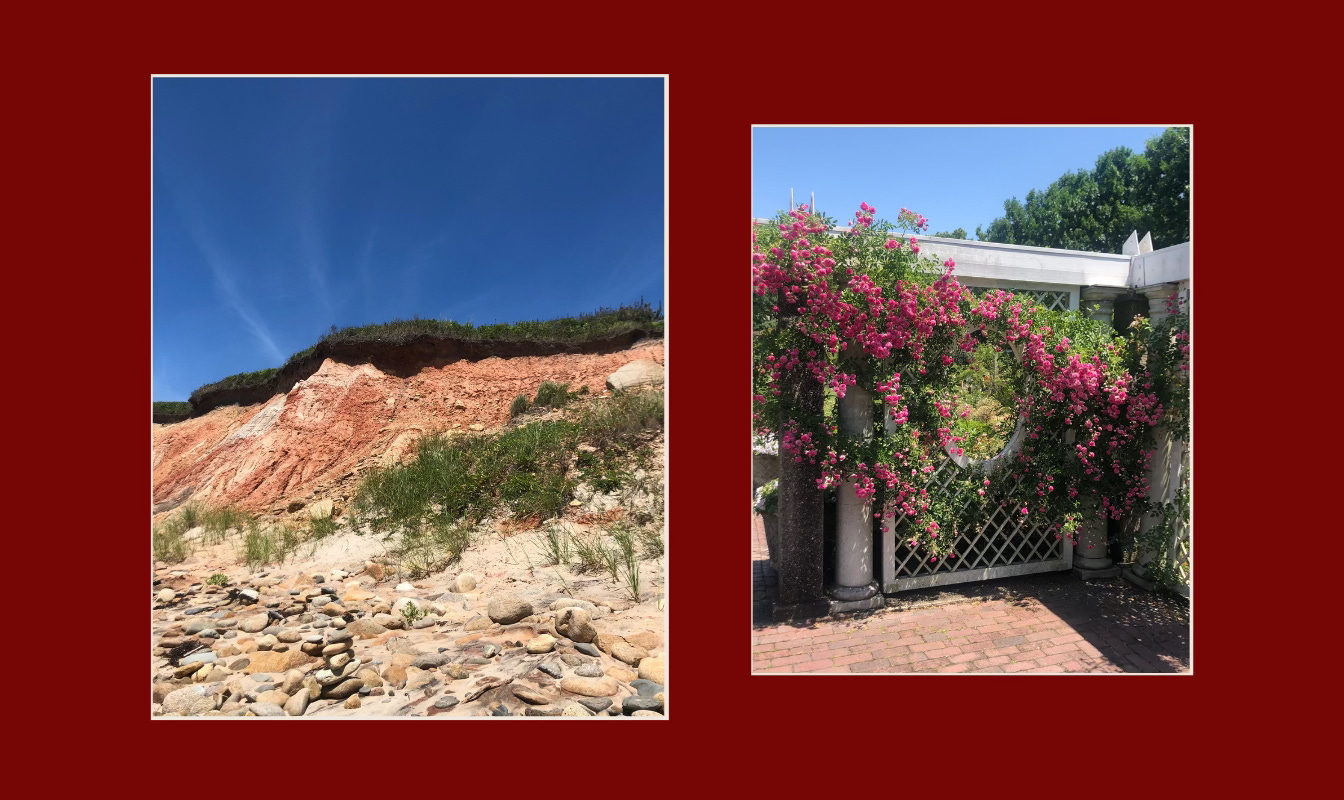
What harmony of form and content! an interview about beauty that is so beautifully articulated (and also beautifully honest and - precise, I want to say?)
You really brought out his point of view, which is so nuanced and specific, in a way that made me feel like I was truly getting to know someone new, in all of their newness.
These interviews make me feel so warm. You can tell how much love these people carry in their hearts for beauty and details, and it really spills out. This is such a great publication and I always am thrilled when I see a new post !!!